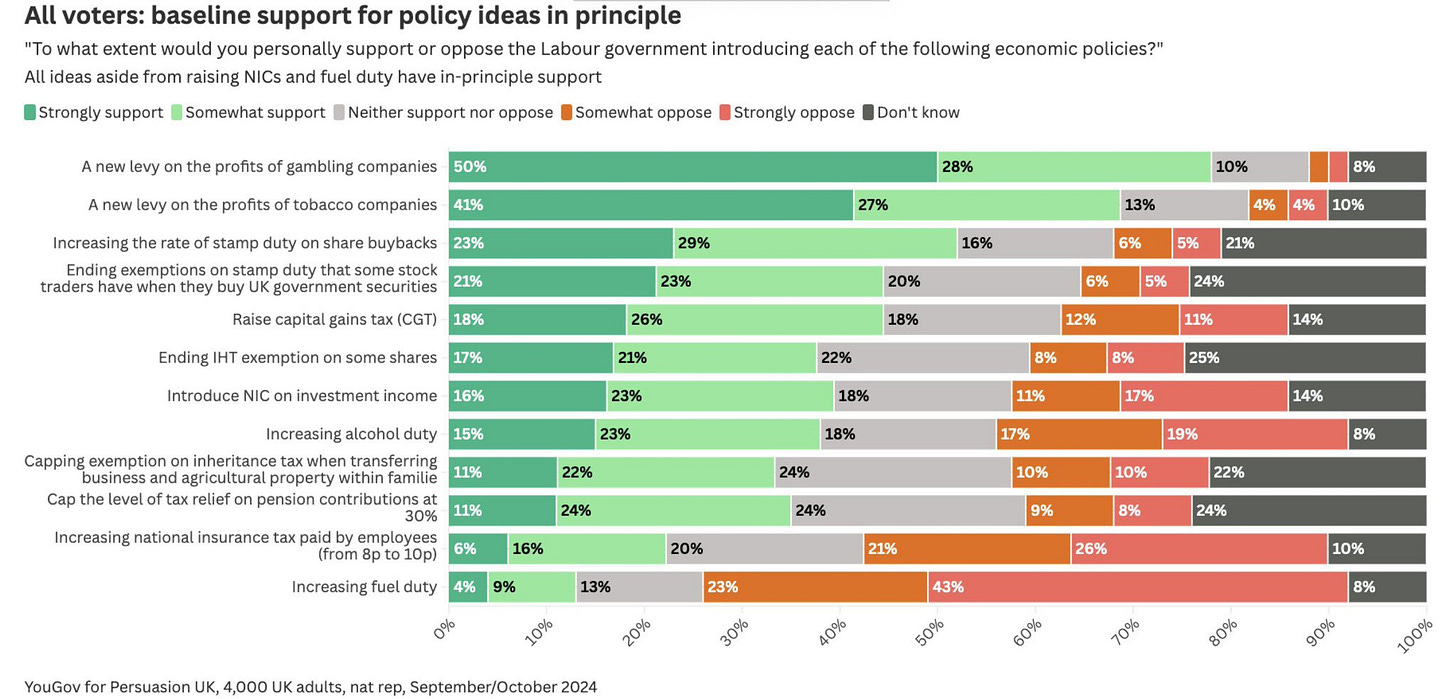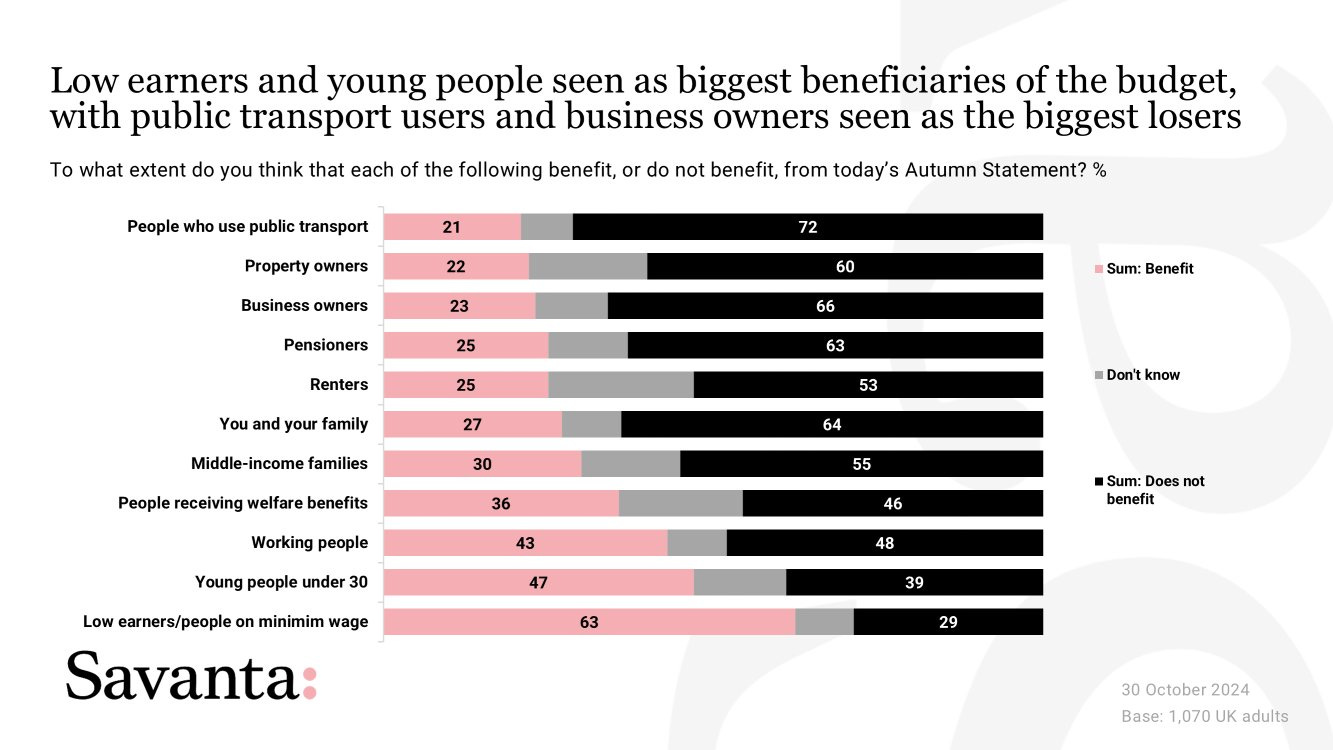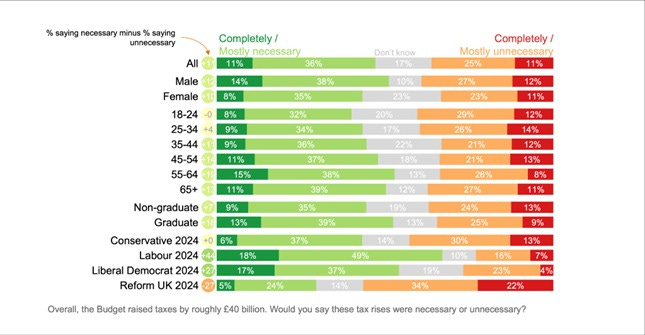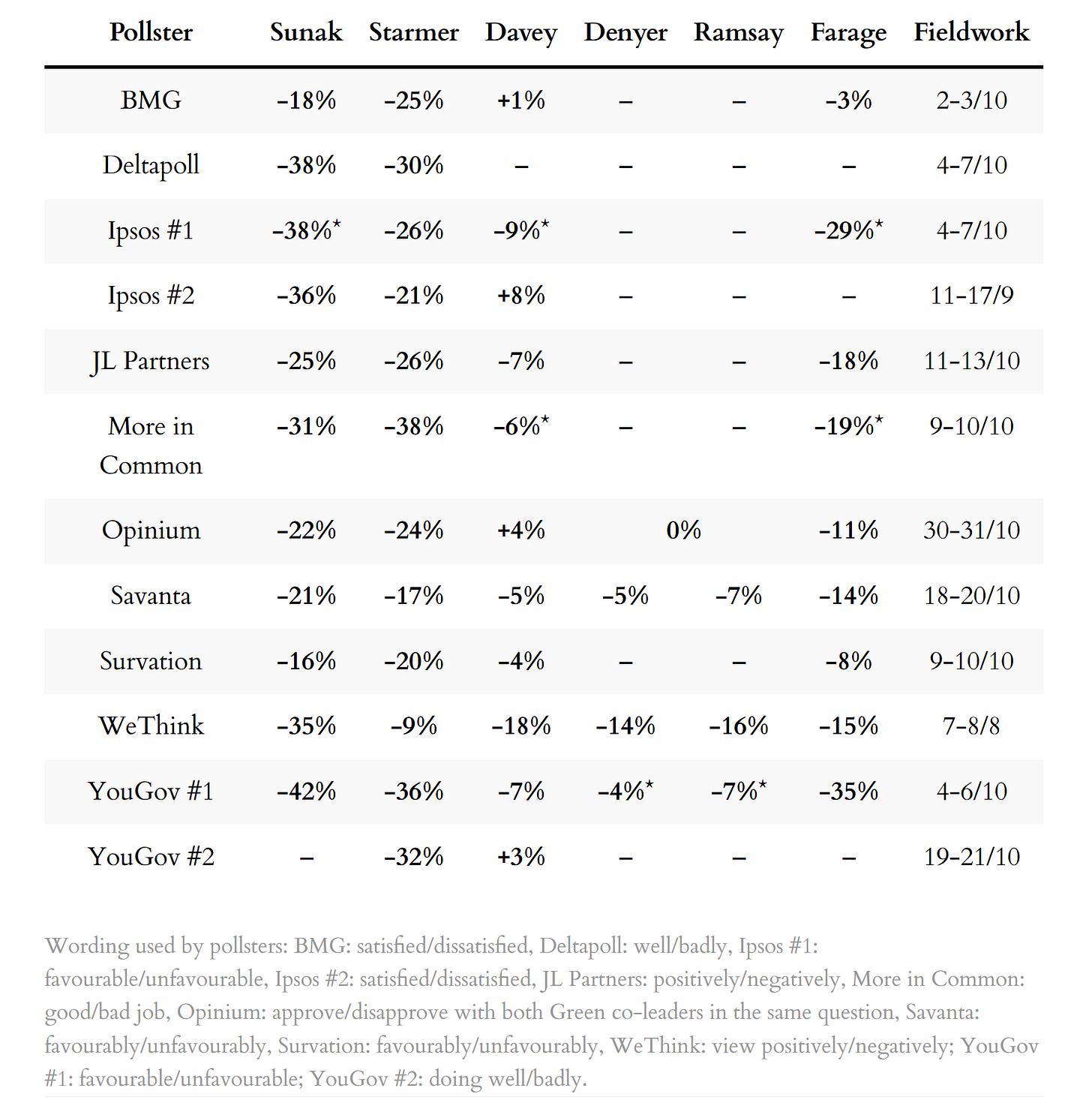Budget polling: what the early evidence says
Welcome to the 133rd edition of The Week in Polls (TWIP), which takes a look at what early post-Budget polling says, carefully avoiding talking about any impact on voting intention scores (no matter how tempting that is for Lib Dems).
Then it’s a summary of the latest national voting intention polls and a round-up of party leader ratings, followed by, for paid-for subscribers, 10 insights from the last week’s polling and analysis.
You will see from those voting intention polls that we have the first Conservative poll lead of this Parliament, and in fact the first for a long time. For some context, it is worth remembering1 that Labour was in lead from first (!) poll after the 1979 general election (which was followed by three Conservative general election wins) and Labour had its first lead after the 2010 election as soon as September 2010 (which was also followed by three Conservative general election wins). So to get the first Conservative lead so early it is another indicator that this is a government polling poorly, but it is not a strong predictor of the next Westminster general election.
Before we get to all that, a little American polling interlude as the pollster with perhaps the best reputation globally for producing surprising poll results which turn out to be right has pulled out another surprising result:
She pulled a surprising final poll in 2020 and was right:
We will soon know whether or not she has done it again….
If you’re not yet a paid-for subscriber, sign up now for a free trial to see what you’re missing:
Want to know more about political polling? Get my book Polling UnPacked: the history, uses and abuses of political opinion polling.
The first polling and focus group data on the Budget
Short term budget reactions and long-term economic and political impact have a fairly flexible connection, both for polling data and for punditry opinions.
Immediate responses can date, sometimes very quickly:
Nor was that just an unhelpful headline writer mangling a more subtle piece of analysis for the piece opened:
So too with the public. Short-term public unpopularity of measures can be overcome by governments and initial public plaudits can turn sour.
But initial public reactions do give a sense of how the government is viewed and whether its task has been made politically easier or harder by the Budget.
Before we look at what the first rounds of polls and focus groups tell us, here first is some older data from Steve Akehurst that shows why promised fuel duty rises keep on getting cancelled, as happened again in this Budget:

The idea of increasing fuel duty, whatever its financial or environmental rights or wrongs, is extremely unpopular with the public.
Turning to new data, Opinium gives us the broad picture for the Budget’s initial reception with the public. Net negative, though better than three of its four predecessors:
Bear in mind, however, that those preceding fiscal events led up to the government that oversaw them being voted out in a landslide. So performing better than most of them is not a high bar.
Turning to the details, YouGov’s post-Budget polling gives a classic Budget polling split: negative views about the Budget overall despite widespread support for many of its measures.
Overall, on affordability, fairness and making the country better off, the Budget does not score well with the public:
Moreover, it is the pain rather than the gain that has been most noticed by the public so far, with tax rises in the top two slots and increased spending for the NHS hardly dominating people’s attention:
However, many of the individual measures get net support:
Each of that bottom trio are particularly worth of note. HS2 frequently polls badly (and that was perhaps part of the thinking behind Rishi Sunak trying to make news of cancelling part if it into a big political moment).
Among pundits and experts, the idea of borrowing to invest is generally very highly rated, but again note how poorly it polls. (A result perhaps of doubts over how well the money will be spent rather than the principle?)
Plus there is the huge unpopularity of the bus pricing changes.
No surprise then that Savanta’s polling finds people thinking that public transport users have come out of the Budget worst:
Given the demographics of bus users, though, it is worth pondering that “people who use public transport” (top category in the poll) and “low earners/people on minimum wage” (bottom category in the poll) heavily overlap with each other.
The political hope and risk for Labour is that, from their perspective, other actions to help low earners will make them feel the government is on their side, with the bus price rises an annoying exception. The risk, and hope for Labour’s opponents, is that the bus price rises - something some people will notice twice a day, every commuting day - becomes the dominant mood driver, overshadowing all the other things the government does.
Though people may not like some of the Budget’s measures, there is also a recognition that some unpleasant steps were necessary, as shown as by JL Partners polling, with a 47%-36% lead among the public for those thinking that the tax rises were necessary. Even Conservative votes do not net disagree as they split equally 43%-43%:
It all adds up to a sense of ‘I don’t like some of the details but I may end up happy with the overall picture’. That also comes through in Lyke Tryl’s account of a More in Common post-Budget focus group:
"Sneaky" but "I’ll give her the benefit of the doubt” summed up how our focus group of Tory-Labour switchers in Scunthorpe felt about yesterday's budget. With a general feeling it wasn't as bad as they thought, but with measures on buses and farmers very unpopular.
Worth saying no one in the group was convinced employers NI was a tax on businesses rather than workers. "They are taxing you around the back door” "They way they are balancing things feels sneaky" "They’ve just changed the wording to suit themselves but it’s still a tax"
That is, I strongly suspect, the crux of the matter. If the government goes on to be seen to be improving people’s lives, then the Budget will be seen as sneaky but necessary. If it doesn’t improve people’s lives, it will get recategorised as dishonest and wrong.
Voting intentions and leadership ratings
Here are the latest national general election voting intention polls, sorted by fieldwork dates:
Next, a summary of the latest leadership ratings, sorted by name of pollster:
For more details, and updates as each new poll comes out, see my regularly updated tables here and follow The Week in Polls on Bluesky.
For the historic figures, including Parliamentary by-election polls, see PollBase.
Last week’s edition
The myth of Budget poll bounces, revisited.
My privacy policy and related legal information is available here. Links to purchase books online are usually affiliate links which pay a commission for each sale. Please note that if you are subscribed to other email lists of mine, unsubscribing from this list will not automatically remove you from the other lists. If you wish to be removed from all lists, simply hit reply and let me know.
Should you believe this polling about MPs’ expenses?, and other polling news
The following 10 findings from the most recent polls and analysis are for paying subscribers only, but you can sign up for a free trial to read them straight away.
Tax expert Dan Neidle has some new polling out, with apparently eye-catching
Keep reading with a 7-day free trial
Subscribe to The Week in Polls to keep reading this post and get 7 days of free access to the full post archives.














